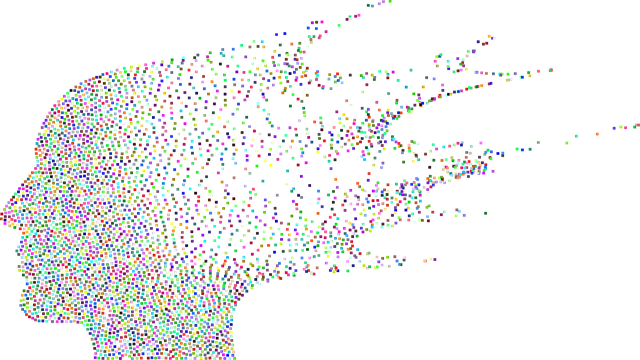This text explores the significance of coping skills in managing Post-Traumatic Stress Disorder (PTSD), emphasizing the role of therapy, particularly cognitive behavioral therapy (CBT), exposure therapy, and eye movement desensitization and reprocessing (EMDR). It highlights the effectiveness of mindfulness practices, meditation, and stress management workshops in improving mental well-being. The text underscores the importance of cultural sensitivity in healthcare, policy analysis, and advocacy for diverse populations, as well as the power of building resilience through therapy to develop long-term coping strategies.
Coping skills development is an essential aspect of therapy, especially in managing conditions like Post-Traumatic Stress Disorder (PTSD). This article delves into the crucial role these skills play in therapeutic processes. We explore effective strategies for PTSD, highlighting cognitive behavioral techniques as powerful tools. Additionally, we discuss mindfulness and meditation as coping mechanisms and emphasize building resilience for long-term skill development. Understanding and mastering these techniques can significantly enhance one’s ability to navigate life’s challenges, particularly those associated with PTSD.
- Understanding Coping Skills and Their Role in Therapy
- Identifying Effective Strategies for Post-Traumatic Stress Disorder (PTSD)
- Cognitive Behavioral Techniques: A Powerful Tool
- Mindfulness and Meditation as Coping Mechanisms
- Building Resilience: Long-Term Coping Skills Development
Understanding Coping Skills and Their Role in Therapy

Coping skills are a set of strategies individuals use to navigate and manage stressful or traumatic situations. These skills play a pivotal role in therapy, especially for conditions like Post-Traumatic Stress Disorder (PTSD). In the context of PTSD therapy, coping mechanisms serve as powerful tools to help individuals process and overcome their experiences. Therapists often work with clients to identify unhealthy coping strategies and replace them with adaptive ones, thereby fostering resilience and improving overall well-being.
The development of effective coping skills is crucial for public awareness campaigns aimed at education and support. By promoting self-care practices and mind over matter principles, these initiatives can empower individuals to better manage their mental health. Understanding coping skills and their application in therapy is essential to enhancing the effectiveness of treatment plans and fostering a more supportive environment for those dealing with traumatic events.
Identifying Effective Strategies for Post-Traumatic Stress Disorder (PTSD)

Identifying effective strategies for Post-Traumatic Stress Disorder (PTSD) is a critical step in promoting emotional well-being. Therapy for PTSD often involves a combination of cognitive behavioral therapy (CBT), exposure therapy, and eye movement desensitization and reprocessing (EMDR). These techniques help individuals process traumatic memories, reduce the intensity of associated emotions, and develop healthier coping mechanisms. Emotional well-being promotion techniques, such as mindfulness practices and relaxation exercises, can complement formal therapy by providing practical tools for stress management.
In addition to these therapeutic approaches, Stress Management Workshops Organization (SMWO) plays a vital role in equipping individuals with immediate coping skills. These workshops offer evidence-based strategies tailored to specific stressors, enhancing participants’ ability to navigate challenging situations. Cultural sensitivity in mental healthcare practice is also essential, as it ensures that interventions are accessible and effective across diverse populations. By integrating these various methods, individuals can gain the resilience needed to overcome PTSD symptoms and lead more fulfilling lives.
Cognitive Behavioral Techniques: A Powerful Tool

Cognitive Behavioral Techniques (CBT) have emerged as a powerful tool in coping skills development, especially for individuals dealing with therapy for Post-Traumatic Stress Disorder (PTSD). CBT focuses on identifying and changing negative thought patterns and behaviors, which can help reduce symptoms of distress. By challenging unhelpful cognitive processes, individuals learn to better understand and manage their emotions, ultimately enhancing their mental health and emotional regulation skills.
This approach integrates well with broader aspects of mental health support, such as Mental Health Policy Analysis and Advocacy, by equipping individuals with practical tools to navigate challenging situations. Moreover, CBT can be effectively delivered through Mental Wellness Podcast Series Production, making accessible resources for those seeking alternative or supplementary therapeutic methods. Through structured exercises and mindfulness techniques, CBT promotes a more balanced perspective, fostering improved mental wellness and overall quality of life.
Mindfulness and Meditation as Coping Mechanisms

Mindfulness and meditation have emerged as powerful coping mechanisms, especially for individuals dealing with post-traumatic stress disorder (PTSD). These practices encourage a focused awareness on the present moment, helping to calm the mind and reduce the impact of traumatic memories. By fostering a sense of inner peace and emotional regulation, mindfulness therapy for PTSD can be a game-changer in managing symptoms.
Incorporating these ancient techniques into one’s daily routine can significantly contribute to improved mental health policy analysis and advocacy, as they promote self-care and resilience. Furthermore, stress reduction methods like meditation have been shown to boost confidence and enhance overall well-being, making them valuable tools for anyone seeking effective coping skills development.
Building Resilience: Long-Term Coping Skills Development

Building resilience is a cornerstone of long-term coping skills development. It equips individuals with the ability to withstand and bounce back from adversities, fostering a sense of empowerment and self-reliance. Through therapy for Post-Traumatic Stress Disorder (PTSD) and other challenging experiences, people learn valuable strategies such as Self-Care Practices and Empathy Building Strategies. These not only enhance their Emotional Intelligence but also provide tools to navigate future stressors effectively. By integrating healthy coping mechanisms into daily routines, individuals can cultivate a robust inner fortress, enabling them to face life’s challenges with greater equanimity and resilience.
Coping skills development is a vital aspect of therapy for Post-Traumatic Stress Disorder (PTSD), offering individuals effective strategies to navigate and overcome challenging experiences. By understanding various coping mechanisms, such as cognitive behavioral techniques, mindfulness practices, and building resilience, those affected by PTSD can enhance their ability to manage symptoms and lead more fulfilling lives. These skills not only provide short-term relief but also foster long-term emotional well-being, enabling individuals to cope with stress and adversity in a healthy and constructive manner.










